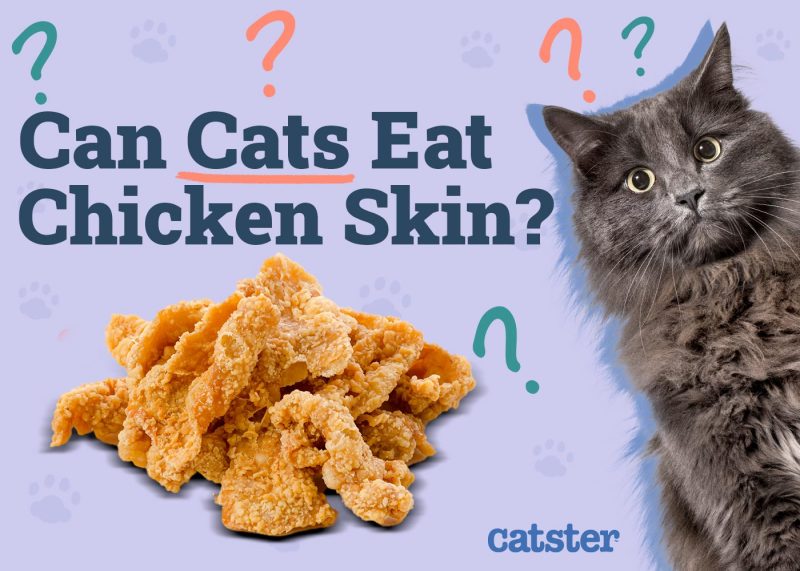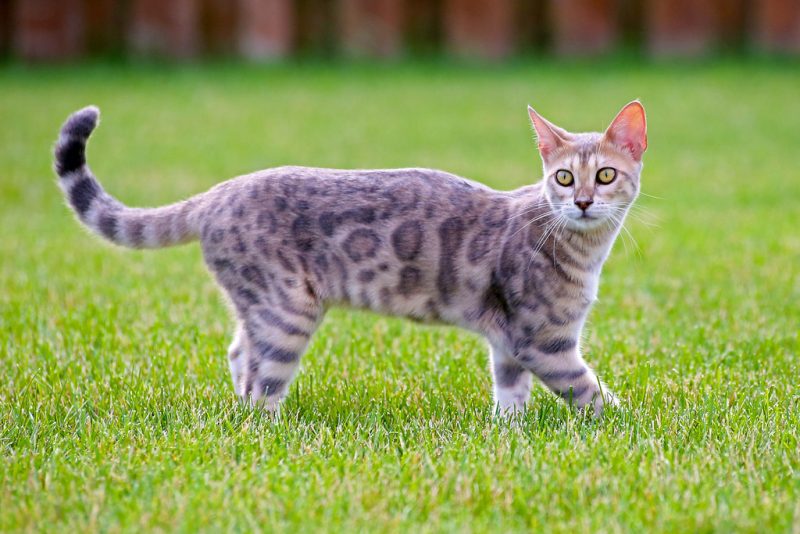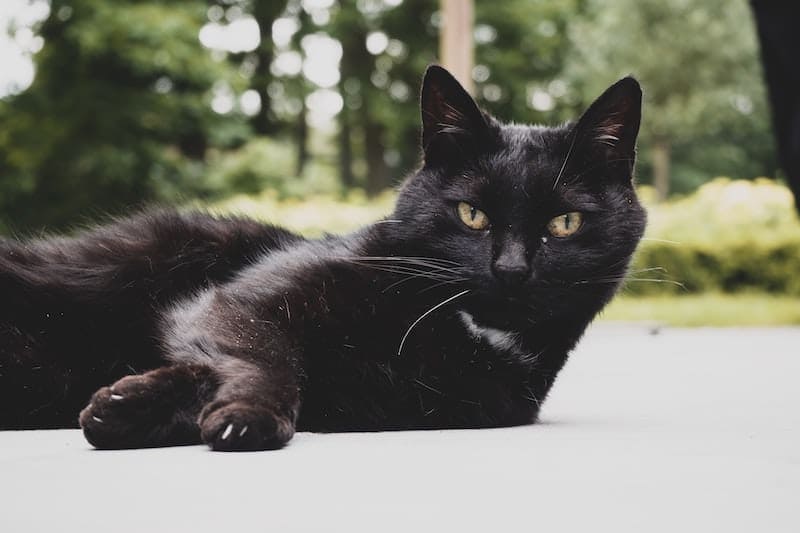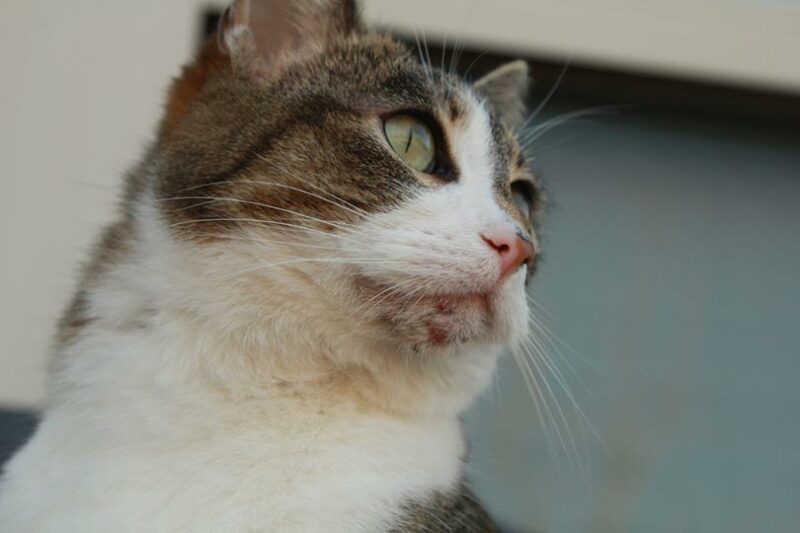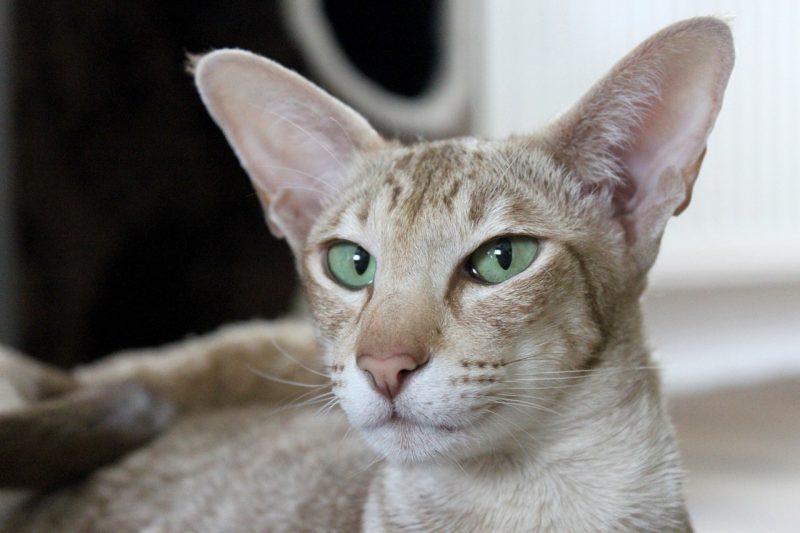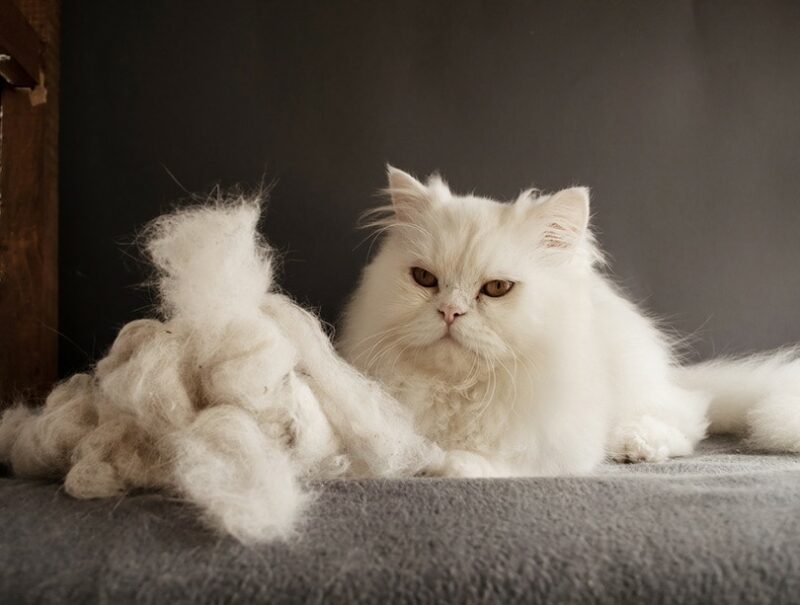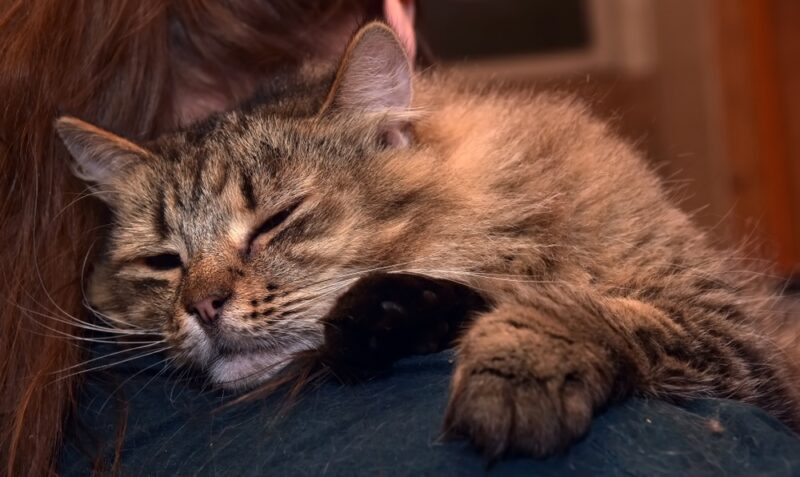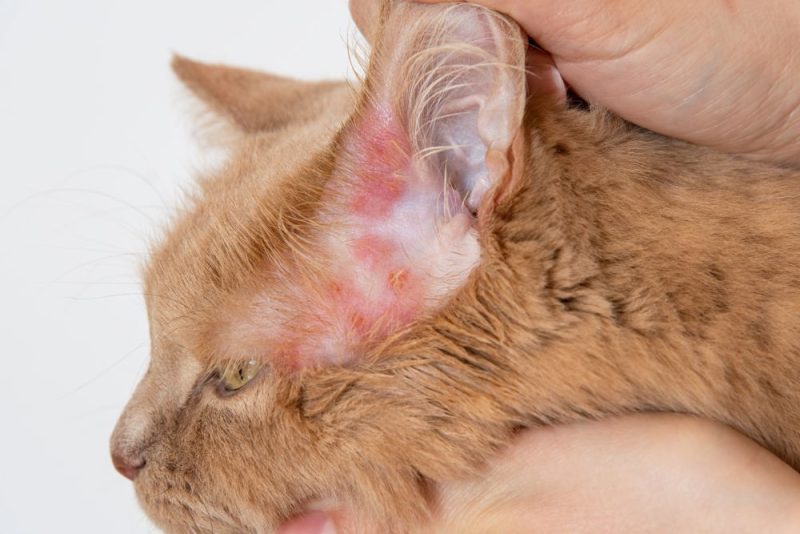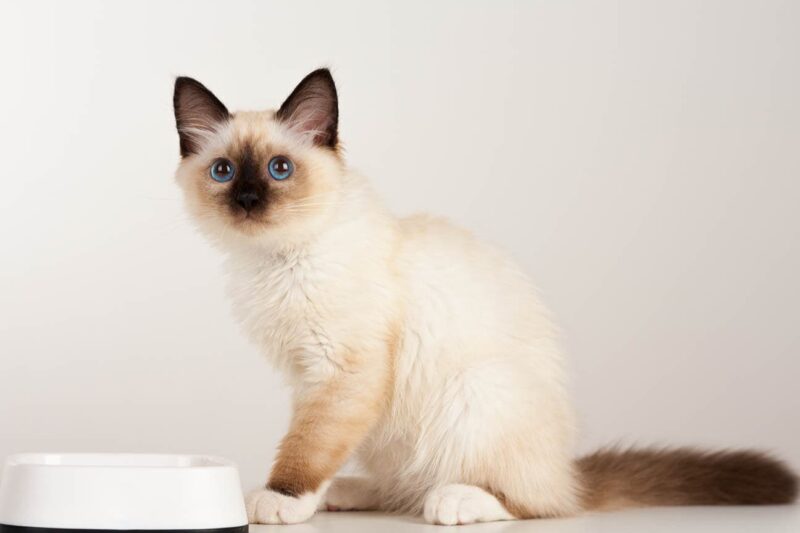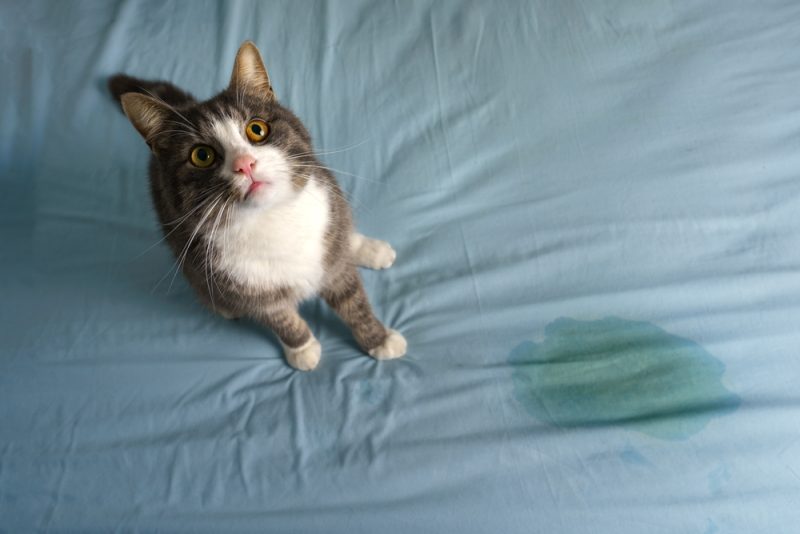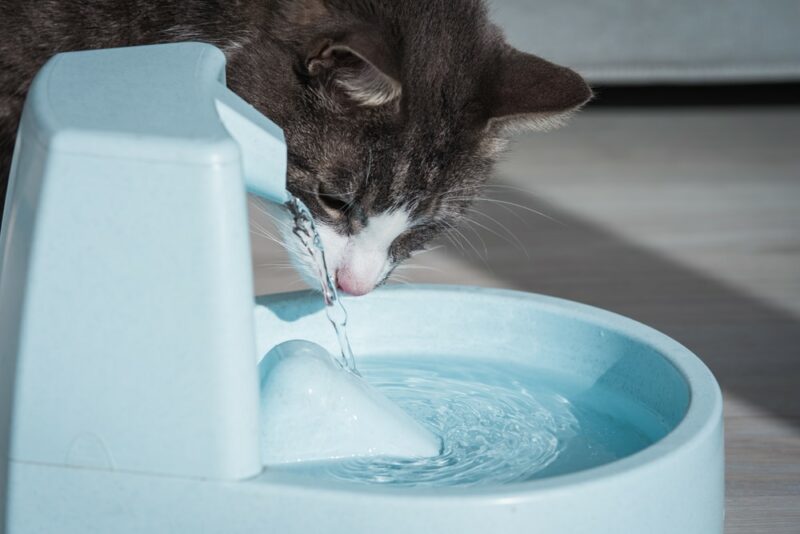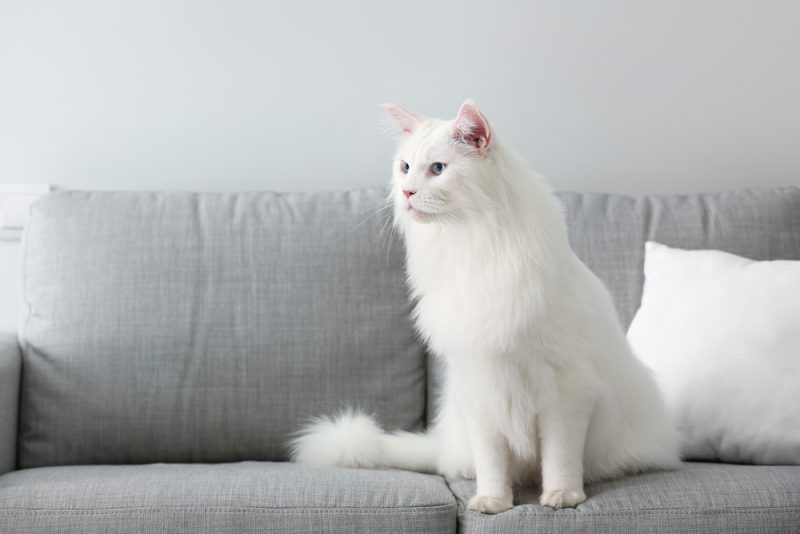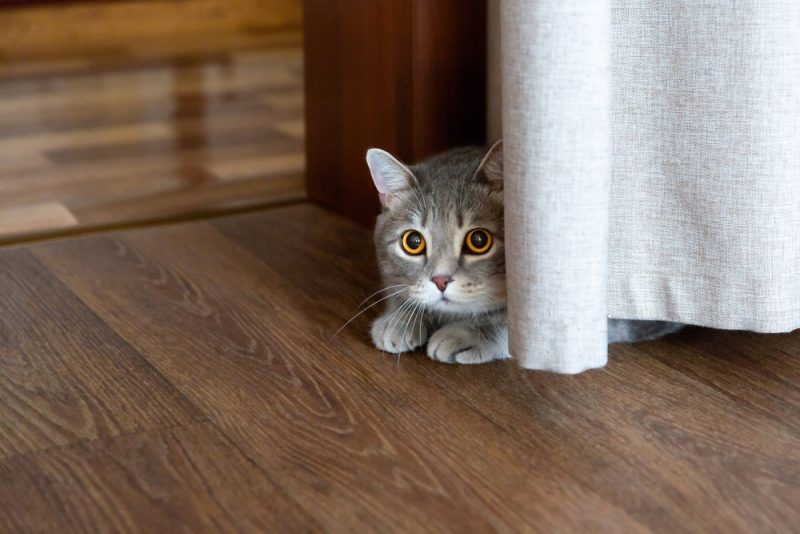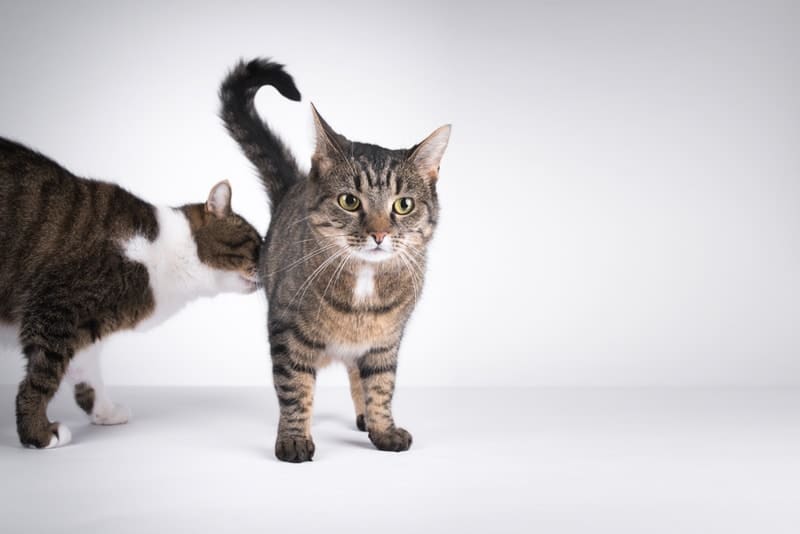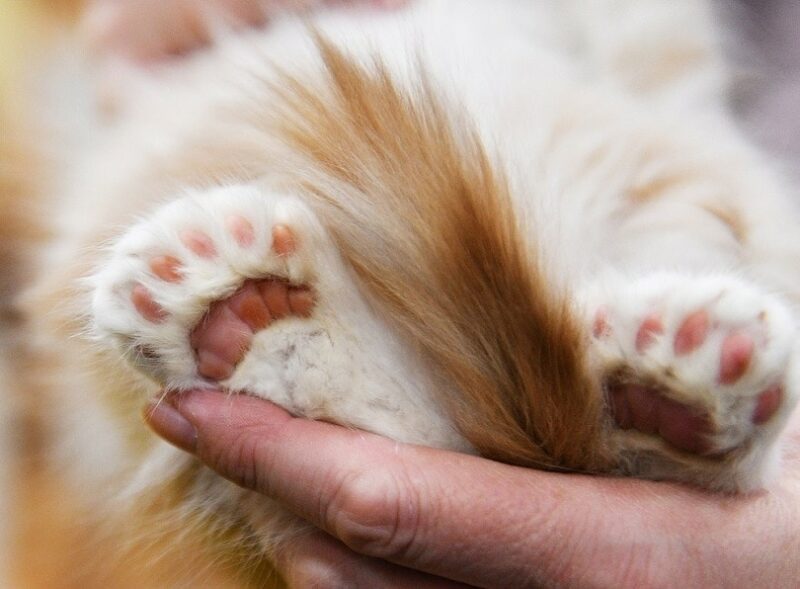Chicken is a popular protein to feed cats, and many cats enjoy eating poultry-based meals. While it’s not advisable to feed cats poultry bones, it’s generally safe to feed cats chicken skin as long as it’s prepared properly and served in moderation.
However, chicken skin contains the highest fat content of any part of the chicken. It should only be served as an occasional treat and should not replace any significant part of your cat’s daily meals.
Is Chicken Skin Safe for Cats to Eat?
Chicken skin often has a bad reputation for being high in fat. It technically does have a high fat content, but it’s mainly composed of unsaturated fats, which are healthier than saturated fats 1.
Cats also benefit from eating healthy amounts of fat. Cats use fat as an energy source, and fat helps to transport certain nutrients across cell membranes. It also helps cats absorb fat-soluble vitamins and can help boost skin and coat health. Since domesticated cats naturally consume fat via animal fat, chicken fat is a palatable fat source for them.
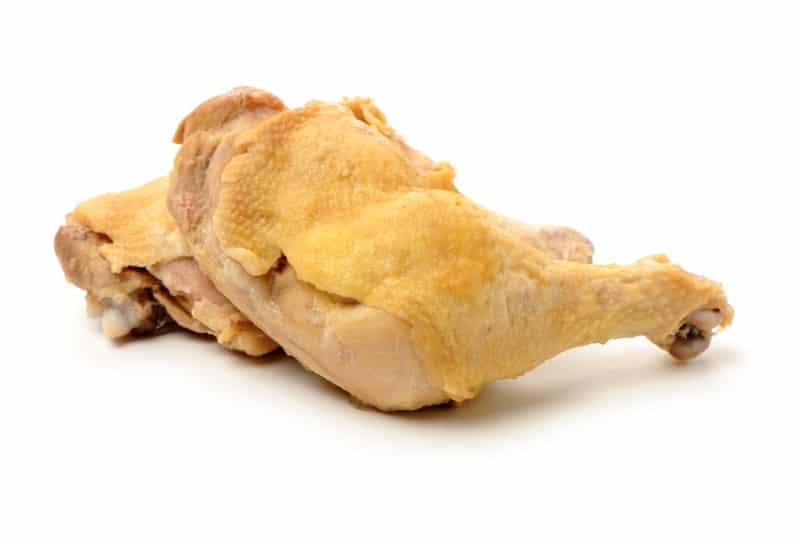

How Much Fat Do Cats Need?
Of course, cats can end up eating too much fat. In general, the Association of American Feed Control Officials (AAFCO) recommendation for fat content in cat food is a minimum of 9% on a dry matter basis. The amount of fat a cat should eat daily will depend on various factors like age, weight, and activity level. However, most cats eat diets that contain between 20%–40% fat.
Some cats, such as those with special dietary needs or health issues, may benefit from eating more fat. For example, since fat is highly palatable, it can encourage underweight cats to eat and get to a healthy weight.
On the flip side, some cats will not benefit from eating more fat. Cats with pancreatitis and those that need to lose weight often need to eat lower fat diets. Since fat plays such a vital role in your cat’s well-being, it’s best to consult the veterinarian to ensure your cat is consuming healthy amounts of fat. The veterinarian can also let you know if it’s okay for your cat to eat chicken skin and if any modifications have to be made to their diet.
Need veterinary advice but can't get to the clinic? Catster recommends PangoVet, our online veterinary service. Talk to a vet online and get the answers and advice you need for your cat without having to leave your living room — all at an affordable price!

How to Prepare Chicken Skin for Your Cat
While cats may be able to eat raw chicken skin, it’s recommended to cook it thoroughly in order to reduce the risk of food poisoning. You can boil chicken skin or leave it on the chicken and cook it.
Never feed your cat fried chicken skin, as it may be too oily for cats and not offer very many health benefits. Any chicken skin that you give your cat should be served plain and without any salt and seasonings.
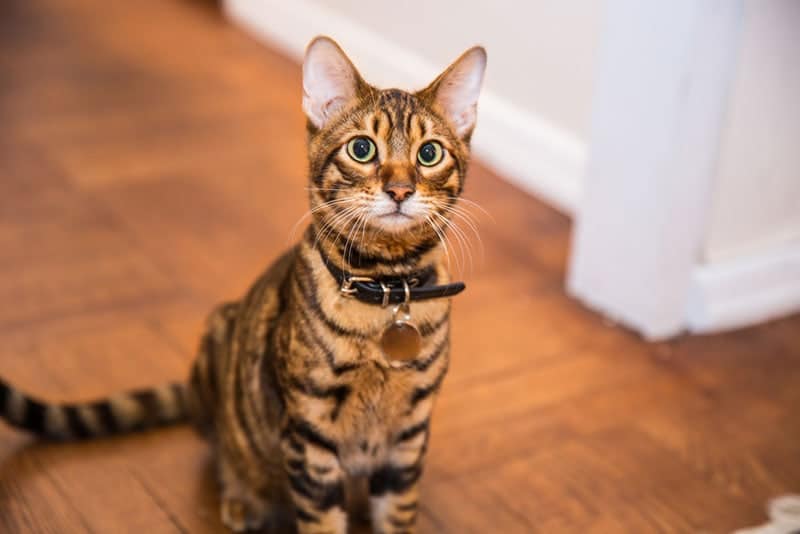

Conclusion
Chicken skin is a safe snack for cats to eat every once in a while. If you do decide to feed your cat chicken skin, just make sure it’s cooked thoroughly and that it’s served plain and unsalted.
However, particularly if your cat has a chronic health issue, it’s best to consult your veterinarian to ensure your cat is consuming healthy amounts of fat, and that chicken skin as a treat is suitable for them.
Featured Image Credit: ThamKC, Shutterstock
